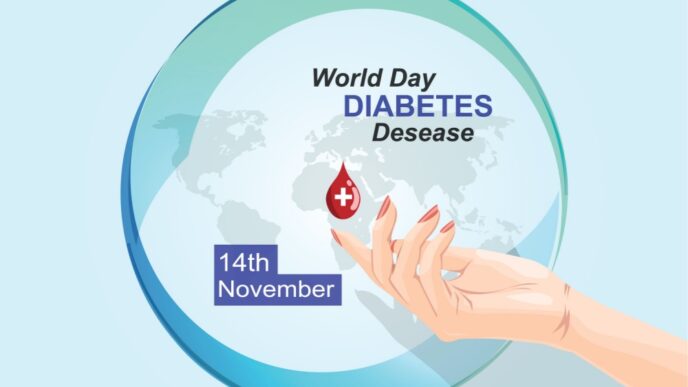Professor Winnie Chee President, Malaysian Dietitians’ Association
Being diagnosed with diabetes does not prevent anyone from living a fulfilling life! Although there is no cure for diabetes, it can be treated and controlled, and some people may go into remission. Diabetes management is about lessening or reducing complications which typically come with the condition, so that you may live your life as normally as possible.
For starters, you have to get your head around the issue. Be mentally prepared, and get hold of the support you need in view of the lifestyle changes you are about to go through. Family, friends and support groups can help to provide you with ample encouragement and motivation that you will need in order to succeed.
When faced with diabetes, the key point is managing your blood sugar levels. Take your medication, and balance your food intake with medication; perform regular exercises; manage your stress levels and cultivate good sleeping patterns – these are essential lifestyle tips to keep your blood sugar levels as near to normal as possible every day.
EAT SENSIBLY
People with diabetes know that they need to take control of their eating habits because blood sugar levels in our body are directly affected by the foods we eat. While there are no special diets for diabetes, it is prudent to choose foods sensibly but not at the expense of its enjoyment!
A diabetes diet is an eating plan that is high in nutrients and fibre; low in fat, sugar and salt; and moderate in calories – now doesn’t it sound like a healthy diet for everyone as well? The only difference is that you need to pay more attention to your food choices.
CONTROLLING CARBS
Carbohydrates are the body’s main source of glucose (sugar) to provide energy to fuel the brain and the muscles. If you have diabetes, excessive intake of carbohydrate foods will lead to high blood sugar levels and poor control of diabetes.
Do not stay away from carbohydrate foods altogether; instead, remember that in order to maintain your blood glucose level at a stable level, your carbohydrate intake should be consistent for each meal. Eat the similar amount of foods containing carbohydrate for each meal as advised by your dietitian.
It is advisable to choose starchy carbohydrate foods which are high in fibre to prevent sharp rises in your blood sugar level. Some of the options for this are wholegrain bread, brown rice, oats, chapati, wholegrain noodles/ pasta and wholemeal biscuits. In addition to these starchy foods, there are other sources of carbohydrate you need to watch out for in your diet, such as fruits, beans, milk, yogurt, and sweets – eat these in small amounts according to your meal plan.
LOAD UP ON GREENS
Loading up on vegetables, especially green leafy ones will assist in blood sugar control, weight control as well as promoting a healthy heart. Ensure at least half of your plate or bowl is filled with vegetables (preferably lightly sautéed and not too oily) and always have a serving of fruit after each meal.
CHOOSE WISELY WHEN EATING OUT
If you do eat out regularly, go for restaurants which offer a variety of meal choices so that it is easier for you to stick with your meal plan. Reduce your food portion size by requesting for less noodles/ rice and avoid dishes with thick gravy (example sar hor fun or mee ladna) or foods fried with flour/breaded (example, chicken chop) as they have the add-on carbohydrates and fat. Order options with lower fat content such as steamed, braised or roasted dishes. You could also opt for more vegetables and have a serving of fruit for dessert.
REGULAR MEALTIMES
For individuals who are on fixed doses of insulin and/or taking oral medication for diabetes, it is important to maintain regular mealtimes to prevent fluctuation in blood sugar levels and optimise the effects of the medication. A regular meal time also helps to regulate appetite and assist in weight control efforts.
MAINTAINING A HEALTHY WEIGHT
Type 2 diabetes and obesity are closely linked; reduction of bodyweight improves blood sugar control and decreases the risk of heart disease and other complications of diabetes. Losing just 5% of your body weight through exercise and sensible eating can improve blood glucose levels, reduce blood pressure, reduce blood cholesterol levels – making you feel more energetic and healthier.












